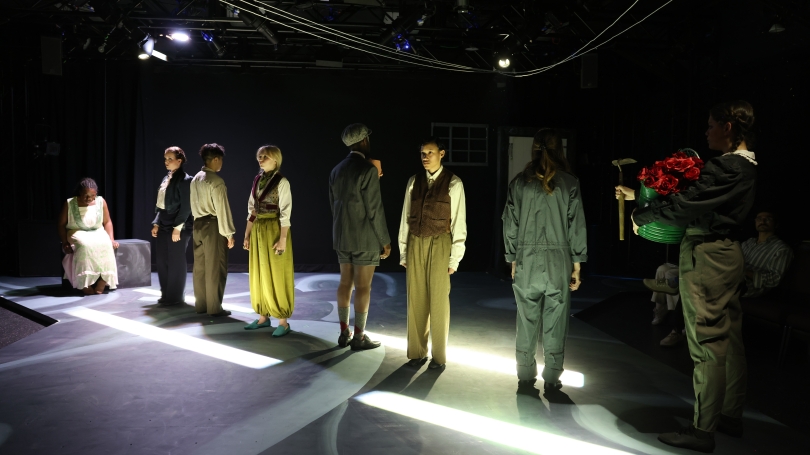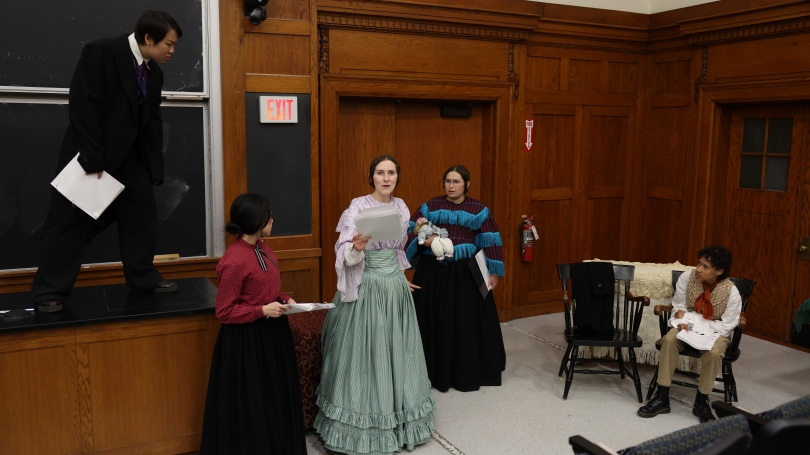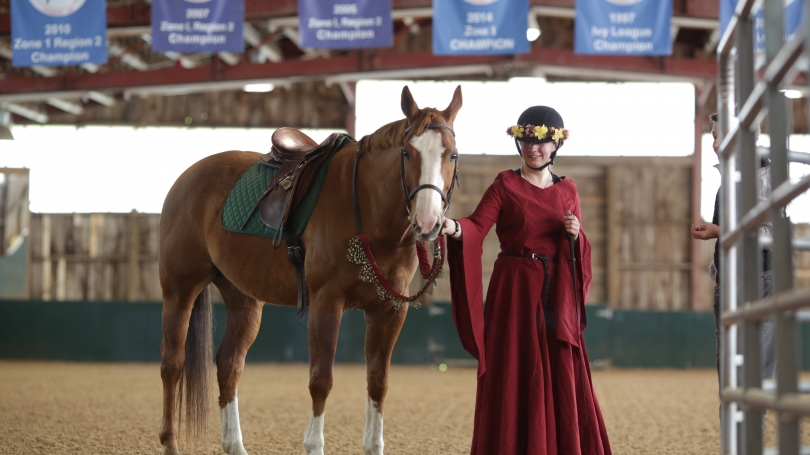The proposal process is divided into two parts, and students must complete both steps on time in order to pursue an honors thesis.
Step 1: The preliminary proposal.
Step 2: The full proposal.
**NOTE: Because of the schedule for our move back into the HOP, any Thesis project that involves staged work will be performed in Winter 2026 (rather than in Spring 2026). This means that the calendar for submitting proposals and taking Thesis course credits (THEA 91 and THEA 92) is pushed earlier than usual.**
PRELIMINARY PROPOSAL
**The deadline for Class of 2026 preliminary honors proposals will be Friday, May 16, 2025.**
Please email your proposal to Catherine Jacobs, Academic Coordinator.
The preliminary proposal is an opportunity for the Faculty to provide the Honors candidate with initial feedback on their ideas in order to help them develop a more complete proposal during the summer. Preliminary proposals should be developed in conversation with a faculty member who could ultimately serve as an advisor for the project.
Preliminary proposals should include the following:
- A brief description of your project
- A project rationale, built around the following questions:
- Why are you proposing this project? How does it help you to fulfill your general educational goals as a theater major?
- What are your top three concrete thesis learning goals with this project? (See "Learning Goals" above)
- How will this project build upon your prior academic experiences as well as challenge you in new and unique ways?
- Why does this project require an honors thesis (two-term) commitment versus other production or curricular opportunities?
- An estimate of the resources that your project will require (number of actors, director, space requirements, etc).
A typical preliminary proposal is between two and three pages in length.
The faculty will provide feedback on your preliminary proposal during the end-of-year meetings that we have with all of our junior students, which are traditionally scheduled at the very end of the spring term. The Department does not vote on preliminary proposals; we understand and expect that your concept and plans will not yet be fully defined at this early stage.
FULL PROPOSAL
**The deadline for Class of 2026 honors proposals for STAGED projects will be Friday, June 20, 2025. Deadline for ACADEMIC PAPER or DESIGN PROJECTS will be Friday, September 19, 2025**
Please email your proposal to Catherine Jacobs, Academic Coordinator.
Students should work closely with their honors thesis advisor to develop their Honors Thesis proposal. Proposals will be evaluated based on the originality and depth of the project, the quality of the proposal, and the student's prior record of accomplishment. The faculty also seeks to balance the student's educational aims with the available resources of the department.
Students who prepare for an Honors project by pursuing approved courses of advanced independent study may, with approval of the Department, be allowed to complete the project (thesis) in one term. Students in the Honors Program must complete the ten courses required for the standard or modified major; the Honors credits are in addition to the ten-course major. Students may complete the ten-course major simultaneously with the Honors thesis: the ten-course major does not necessarily have to be completed before the honors work has begun.
For reference, students may view our Honors Thesis proposal template .
Examples of successful honors thesis proposals are also available from the Department's Academic Coordinator. For additional information, students should consult with the Chair of the Department of Theater.


